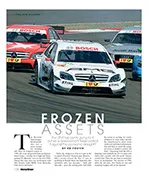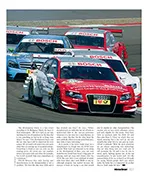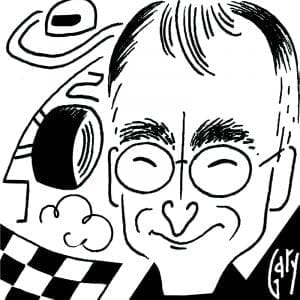

Frozen assets
The DTM has plenty going for it, but will a development freeze protect it against the economic draught? By Ed Foster The Deutsche Tourenwagen Meisterschaft was not a series known…

He will be 39 years old as he begins the season (on the assumption that the 2021 season is underway before the end of July that year) and not unnaturally there have been questions about whether he can still perform at the level that brought him his past glories.
There have been questions too about his effect on the ambience of a team. It’s a subject around which there seems a sharp divergence of views. One veteran insider from Alonso’s infamous 2007 season at McLaren describes him to this day as, ‘the most disruptive and divisive figure I have ever had the displeasure of working with.’ Except that he didn’t use the word ‘figure’…
Alonso’s overpowering need is to be winning and his emotionally-driven reaction to things standing in between him and that aim have in the past been simplistic, heavy-handed and ill-advised in the extreme. There is no diplomacy about how he expresses what he sees as obstacles to the agenda – which is always for him to prevail.
There are some who were at the Enstone team during his first two stints there who say he came back somewhat changed after the bruising 2007 McLaren season. It was as if he was taking shelter from the storm, back in what had always been a supportive and easy environment for him, and not just because it was run by his manager Flavio Briatore. But he wasn’t quite the same relentless performer on track and seemed to have become more detached and brooding off it. If the car was anywhere near competitive, he lit up to become the great Alonso again. But there were races that passed by in a blur of mediocrity.
Then he went to Ferrari. The honeymoon was great, the team loved him and he naturally assumed the team leadership status he’d always had at Enstone. Then a disastrous pitwall strategy call at the 2010 Abu Dhabi finale lost him what would have been a world championship against the odds. “From that moment he became about himself,” says a Ferrari team member of that time. “It was as if he cut himself off from everyone, that they had let him down.”
“The problem with Fernando,” Luca di Montezemolo told me in a Motor Sport interview, “was that in his comments he gave the impression that if he was in the Mercedes he would be winning every race. That was very dispiriting for the team. In the car he was fantastic, probably even the best. But that attitude is why I began looking at Sebastian [Vettel] as a better solution for us.”
But another person who was there at the time, race engineer Rob Smedley, disagrees with that assessment. “He constantly wants the best and expects 110 per cent of everything and everyone, which is extremely demanding. But I think that gets misconstrued as aggression. That’s not the right word. I never saw him angry, never heard him utter a wrong word. But he is an operator who knows his way around a team and what the machinations are. “I found him very motivating. You need people like that; you can’t have an attitude of ‘just good enough’ in a top F1 team. He doesn’t want to just take part, he just has that single-minded motivation for 365 days a year.
“I think how he affects people depends on the person you’re talking about. What I find demotivating is not winning. So when I heard him saying out loud what was wrong and what needed changing – things he didn’t hold back on, he really calls a spade a spade – even if it was something over which I had responsibility, I welcomed that. Some don’t. Egos come into it, I guess, and how thick or thin your skin is. Some take it personally.”
Second time around at McLaren, they loved him. But it was a different McLaren, especially once Ron Dennis had moved on. Unfortunately, it was a much less competitive one. Honda, however, was embarrassed by his publicly vented frustrations – and if his biggest career mistake was trying to pressure Ron Dennis in Hungary 2007 into favouring him over Lewis Hamilton, using the threat of the FIA investigation that the team was under, then the second-biggest was probably exclaiming ‘GP2 engine, GP2 engine’ over the radio as he was overtaken under acceleration.
That has even impacted upon his chances of winning the Indy 500 – something he will be attempting once more this year. Just not with Honda power. So he returns to the team where he always seemed a natural fit. They absolutely need each other; they are in a fight for their own F1 futures. Alonso is by far the best available driver to replace the departing Daniel Ricciardo, Renault is the only realistic way Alonso is going to return before it’s too late. They are in this fight together. But there will need to be no delicate petals or big egos. What he brings can be very, very special – and it could be one hell of a ride. Hold tight.